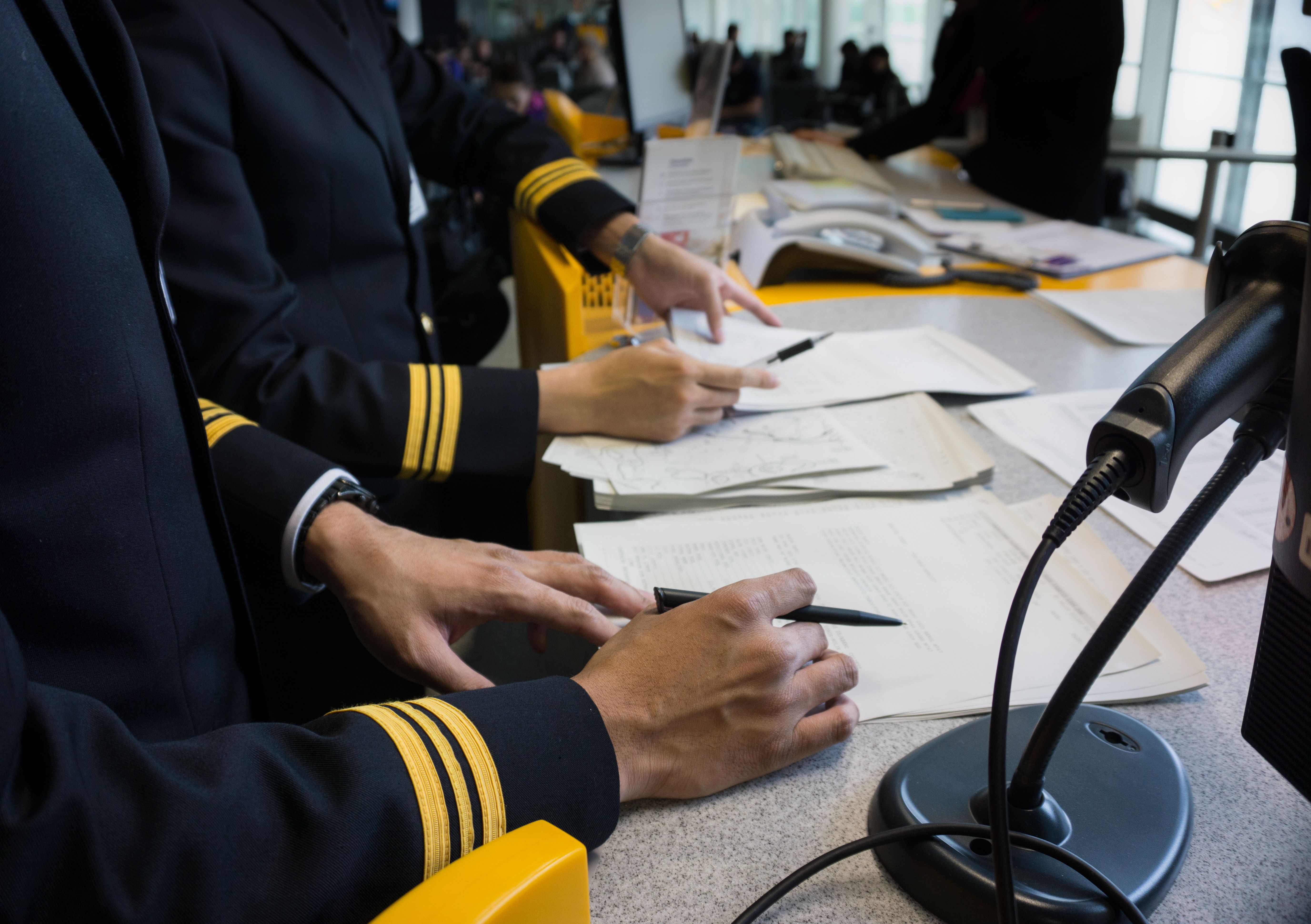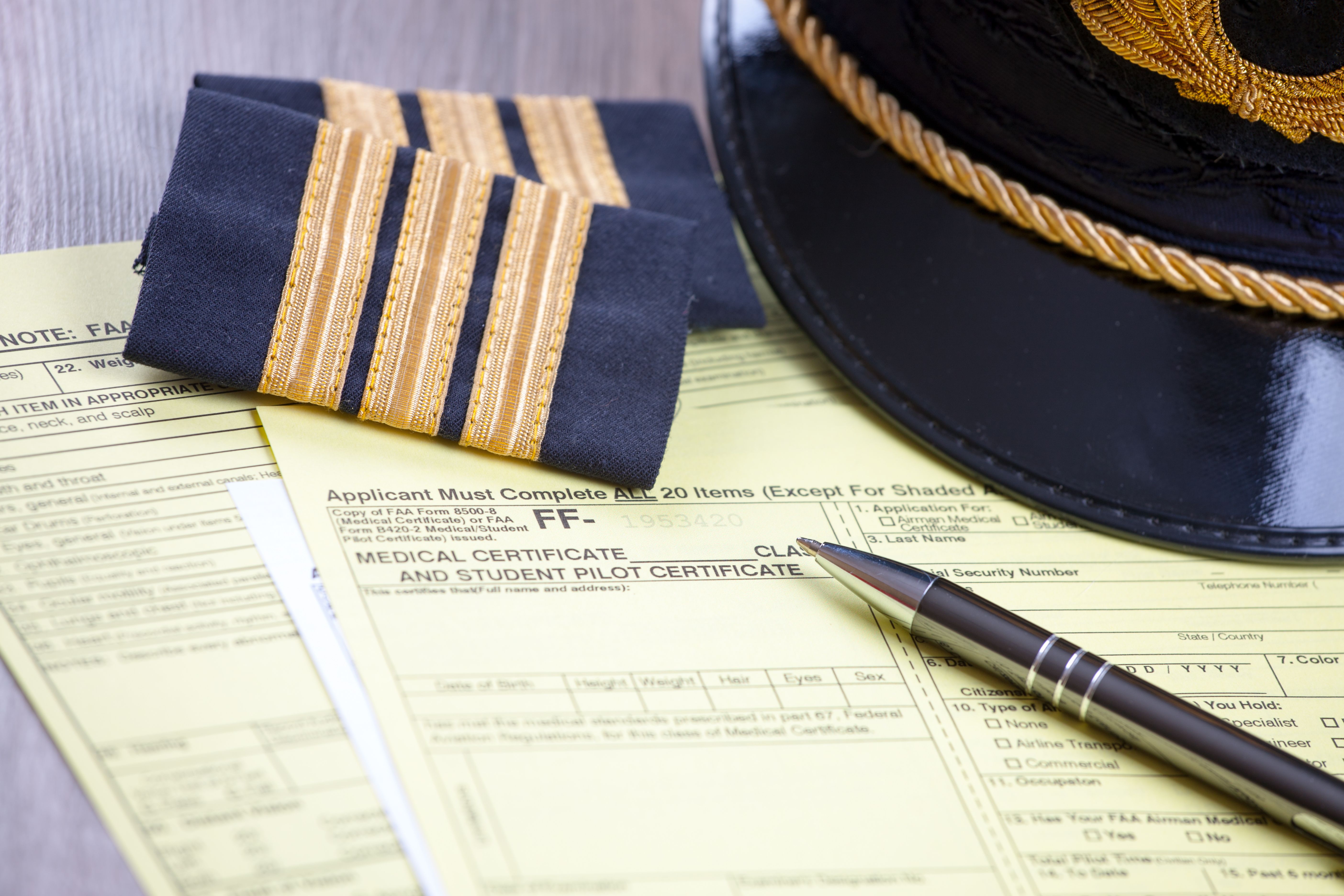Multiple certificates are needed to fly a plane. Medical certificates are a lesser-known criterion by the flying public but a topic that pilots are acutely aware of.
How to get a medical certificate
A pilot medical certificate can only be issued by an aviation medical examiner (AME). These FAA-licensed licensed doctors typically have primary practices specializing in a particular medical field. The doctor, often a pilot themself, accepts pilot medical check-ups as a tangent to their primary field (though some AMEs accept only pilots). Airline pilots in the United States must meet the qualifications for a first class medical. Pilots under age 40 need to renew their medical annually, while those over 40 must renew biannually.
Aeromedical exams check a variety of health parameters. Distant vision must be 20/20, while intermediate and near vision has to be 20/40. Airline pilots can artificially correct their vision, so glasses and contacts are permitted. The ability to distinguish colors is verified, as is hearing at conversational levels. Blood pressure and heart function are the last significant components of the exam. At age 35, an electrocardiogram is required. After turning 40, pilots take this test yearly.
Medical regulations
There is a list of medical variables that disqualify an FAA medical certificate. Heart issues, such as valve replacements or permanent pacemakers are disqualifying, as are psychological disorders, substance abuse, and epilepsy. The FAA keeps a list of conditions that disallow the issuance of a medical certificate. However, there is a way to hold a medical certificate with a limiting condition.
The regulations allow for the special issuance of a medical certificate. Special issuances can be granted for partial color blindness or medication taken to remedy heart conditions. Special issuances are also given to pilots who have recovered from significant surgeries or diseases and could not hold a medical during treatment. The Federal Air Surgeon from the FAA headquarters in Oklahoma City grants special issuances. These certificates have longer processing times and are subject to revocation. Pilots take measures to prevent needing a special issuance, though often health is out of one's control.
Age and certification
A pilot can still be issued a first class medical certificate after their 65th birthday. Airlines operating under Part 121 of the Code of Federal Regulations cannot employ pilots after this age; however, pilots 65 and older can fly under Part 135 (charter and on-demand flying), which still requires a first class certificate. The FAA does not impose an age at which pilots must stop flying, so a pilot can be of any age and be issued a first class medical if they meet the criteria.
Want answers to more key questions in aviation? Check out the rest of our guides here.
The bottom line
Airline pilots visit simulators annually to keep their pilot certificates. Likewise, they visit Aviation Medical Doctors annually or biannually to keep medical certificates up-to-date. The significance of aviation medical exams to pilots cannot be overstated. The ability of a pilot to work depends on their fitness to pass this exam.



